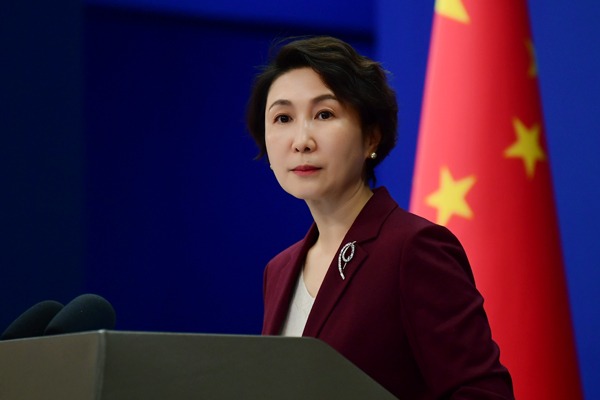G20 snub shows US' unease with new multilateral order


The inclusion of Africa — from observer to full institutional actor — in the G20, which represents 85 percent of global GDP, 80 percent of international trade and two-thirds of the world's population, marked a decisive step toward a more just and representative global economic order.
Prior to the African Union's admission as a permanent member in 2023, the continent's voice in the G20 was represented solely through South Africa, whose presence, while symbolically significant, could neither adequately reflect Africa's diversity nor fully champion the continent's collective developmental priorities. But South Africa was crucial in the G20 because it was the only voice that represented Africa.
The United States' decision to miss the G20 summit in South Africa this year is not an isolated or unprecedented slight toward the continent. Rather, it reflects a recurring pattern in which Washington disengages when global forums shift toward priorities championed by Africa and the wider Global South. Earlier this year, US Secretary of State Marco Rubio openly boycotted the G20 foreign ministers' meeting in Johannesburg, dismissing South Africa's agenda as being dominated by climate change issues.
His reaction was neither accidental nor purely ideological. Instead, it revealed a deeper US discomfort with an increasingly self-defining and self-liberating Africa — an Africa that challenges Western conditionalities and asserts its own frameworks for development, finance and sovereignty.
For decades, US engagement with Africa has been structured through instruments such as International Monetary Fund and World Bank loans tied to policy prescriptions that often constrained national autonomy. Today, as African states diversify their partnerships and embrace alternatives offered by actors who emphasize infrastructure, trade and financing without overt political conditions, the US finds itself increasingly unsettled by a continent that is no longer dependent on US-defined pathways.
Therefore, the recurring snubs, from boycotting ministerial meetings to withdrawing from summits hosted by African states, reflect not merely diplomatic disagreements but a broader unease with Africa's gradual liberation from Western leverage and its pivot toward a multipolar world where the US can no longer hold dominance.
Diplomatically, US President Donald Trump's refusal to attend the G20 summit reflects a broader US posture that aligns with the administration's withdrawal from multilateral forums in which US preferences are not guaranteed primacy. Given the strengthening of BRICS and the increasing alignment among emerging economies around issues such as financial reform, climate change, industrial policy and resource sovereignty, it is likely that the US may, moving forward, remain less accommodative to the G20 while instead relying increasingly on the G7, bilateral agreements or ad hoc coalitions of like-minded states to project influence.
The US position on the G20 summit in South Africa must be read not only through the lens of bilateral tensions or ideological disagreements, but also within the broader strategic anxiety that Washington has developed toward multilateral institutions, such as BRICS, as a rising geopolitical counterweight.
The US has consistently favored economic nationalism, transactional diplomacy and skepticism toward multilateral institutions, which starkly misaligned with the G20's ethos of cooperative macroeconomic management. Therefore, South Africa's position as an influential BRICS member places it at the heart of an alternative political and economic grouping that openly advocates reforms long resisted by Washington.
The US' earlier threat to impose 100 percent tariffs on BRICS nations, following discussions about reducing reliance on the US dollar, illustrates a posture of defensive economic nationalism designed to shield the US from structural shifts in the global financial architecture.
With the US-proposed African Growth and Opportunity Act already a thing of the past, Washington will bear immediate reputational costs among many African and Global South countries if it is perceived as abandoning multilateral engagement for domestic political gain.
The US absence from the G20 summit in South Africa echoes its broader pattern of retreat from multilateralism, reflected in several high-profile withdrawals that reshaped the US' global standing. For example, the Trump administration pulled the US out of the 2015 Paris Agreement on climate change, signaling rejection of collective climate responsibility.
It also exited the World Health Organization and abandoned the Iran nuclear deal, undermining a major international nonproliferation framework, and withdrew from the United Nations Human Rights Council and the Trans-Pacific Partnership, which was designed to anchor US influence in Asia. The US also terminated involvement in the Global Compact for Migration, pulled out of UNESCO for a second time, and weakened commitments under the Arms Trade Treaty by announcing that the US would no longer consider itself bound by the treaty.
These actions reveal a consistent skepticism regarding global governance institutions, one that reinforces the symbolism of skipping the G20 in Africa and highlights Washington's discomfort with a rapidly evolving, more inclusive multilateral order in which Africa and the Global South hold increasing influence.
For policymakers, the imperative is clear: sustainable inclusive, problem solving-oriented cooperation, in which "my way or the highway" is not the way of life.
The author is founder of Africa Center for Diplomatic Affairs, based in Nairobi, Kenya.
The views do not necessarily reflect those of China Daily.































